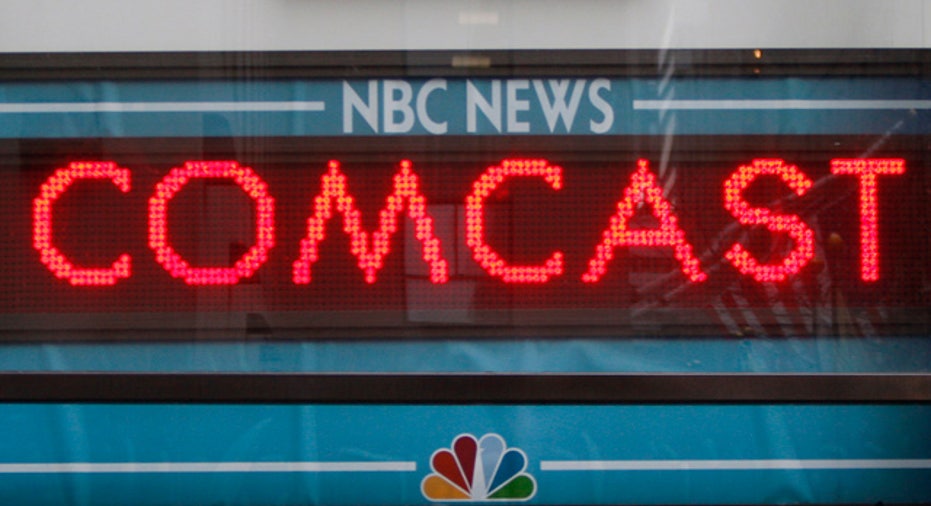A Grade School Kid Can Predict Cable-Deal Fallout

When my boys, aged 9 and 10, ask me at the dinner table what I wrote about at work that day I often default into a deadpan monologue during which I expound upon the pros and cons of quantitative easing, rising concerns for the stubbornly low employment participation rate or the root causes of deflation.
They play along, nodding earnestly. Then we return to more immediate affairs such as homework and hockey practice.
But last night was different. I initiated the conversation.
What happens, I asked them, to the price of a product or a service -- say, cable television -- if there are two companies out there that provide that similar product or service?
In other words, if those two companies are competing for customers what’s the best way for one of the companies to attract customers to its product or service -- say, cable television -- rather than its rival’s?
They thought about it for a moment, but not for very long. Lower their price, they said at almost the same time. Indeed, I said, to fist bumps all around.
Now, I continued, what would happen if those two companies joined together and there was just one company left providing that product or service -- say, cable television -- and customers had no choice but to buy from that company.
Again a pause, but not for long. They could charge anything they want because there’s no place else to go, the boys concluded, following my train of thought.
Exactly, I said, to more fist bumps.
‘So Over the Top’
My point being that if a couple of grade school kids can predict the assuredly inevitable results of the proposed $45.2 billion merger between cable giants Comcast (NASDAQ:CMCSA) and Time Warner Cable (NYSE:TWC), the U.S. Department of Justice and the Federal Communications Commission should have no problem either.
That remains to be seen, however.
Consumer advocacy groups and organizations that support freedom of choice in the media, whether it be on network TV, cable television or the Internet, are aghast at the proposal.
“No one woke up this morning wishing their cable company was bigger or had more control over what they watch and how they get online. But that's the reality we’ll face unless the Justice Department and the Federal Communications Commission do their jobs and block this merger,” the Washington, D.C.-based advocacy group Free Press said in a statement.
Common Cause, another D.C.-based advocacy group, said the FCC should “promptly and emphatically” reject the merger.
Common Cause’s Michael Copps, a former FCC commissioner, said, "This is so over the top that it ought to be dead on arrival at the FCC. The proposed deal runs roughshod over competition and consumer choice and is an affront to the public interest."
One person apparently pleased with the deal is hedge fund guru John Paulson, whose fund owns 6 million shares of Time Warner Cable. The deal is “strategic, synergistic and accretive and will likely lead to further gains due to further appreciation in Comcast stock,” Paulson & Co. said in a statement.
Paulson is famous for making billions shorting the U.S. housing market last decade. He even lent his expertise to Goldman Sachs (NYSE:GS), helping them create dodgy investment products that were sold to investors as solid bets. Which is to say consumer advocacy is not necessarily his métier.
In defense of the merger, executives with Comcast and Time Warner Cable -- and more than a few analysts with no skin in the game -- say growing competition from satellite companies such as DirecTV (NASDAQ:DTV), telecoms such as Verizon (NYSE:VZ), and Internet content providers like Netflix (NASDAQ:NFLX) have leveled the playing field such that a combined Comcast/Time Warner Cable poses no threat of a monopoly.
Not a Red or Blue Issue
The cable-buying public, which already ranks Comcast and Time Warner Cable near the bottom of customer approval ratings surveys, may have at least one thing going in its favor.
As one anti-trust expert pointed out to me, in an increasingly polarized nation rising cable costs and lousy customer service are two of the very few things most Americans can agree on. “This isn’t a red or a blue issue,” the law professor said.
At last count about 100 million Americans were still paying for cable, nearly one-third of whom (an estimated 30 million) would be consumed into Comcast’s empire if the merger is approved. That’s a lot of angry voters. Which should translate into a frenzy of Congressional hearings and media attention ahead of any ruling by the Justice Department or the FCC.
When Comcast CEO Brian Roberts (apparently a pretty good friend of President Obama’s, by the way) is called before Congress to justify approval of his mega-deal, it will presumably be easy for any self-respecting, attention seeking, vote grasping Congressman to frame this issue in a context similar to that which I laid out for my kids.
Two companies lead to competition. One company leads to monopoly.



















